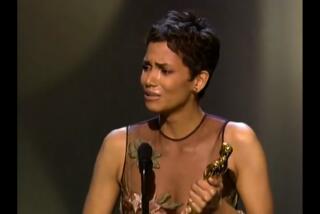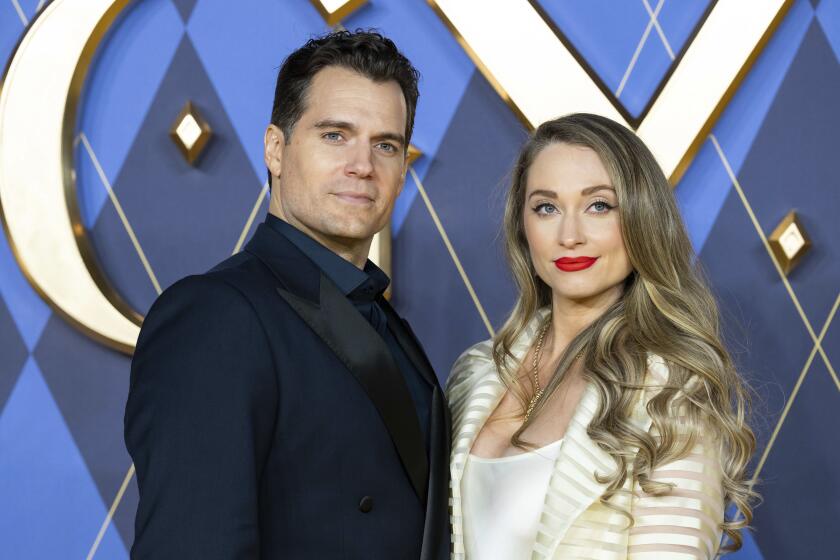Oscars: Most memorable TV moments of the last 50 years
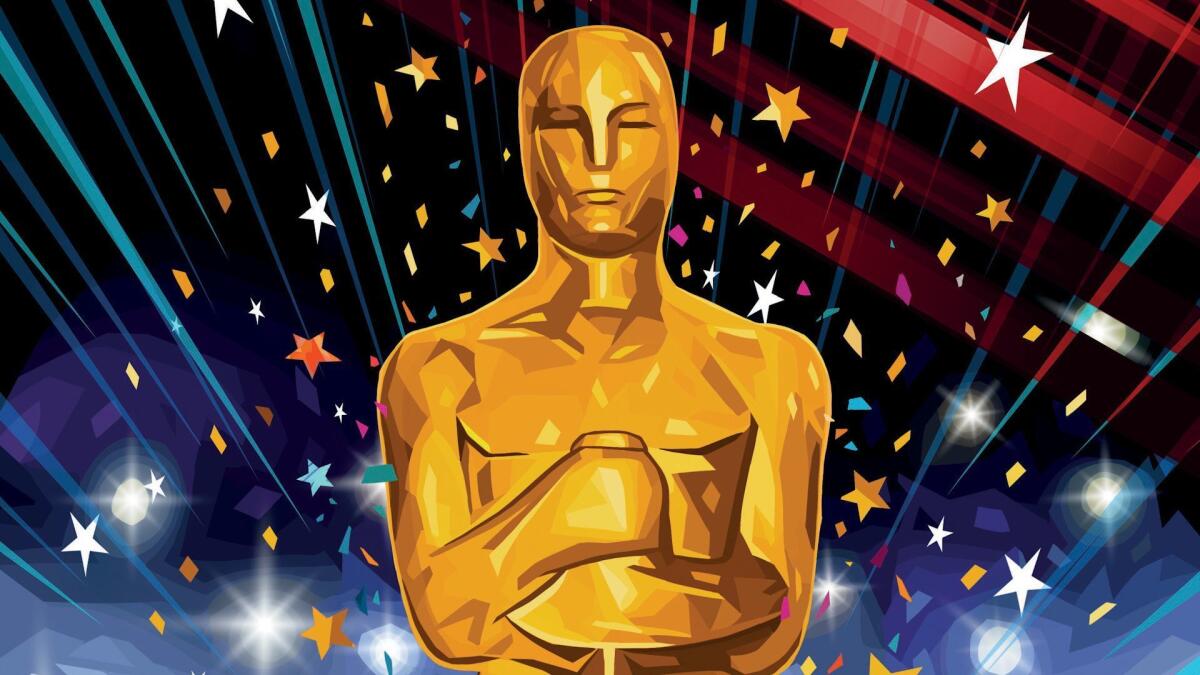
With all the recent talk about how the motion picture academy could change the Oscars telecast — and the fierce blowback to any proposals that they would — we’re reminded of why we’ve loved watching the Academy Awards for so long.
At their best, the Oscars do more than just honor great achievements in filmmaking. They also provide those unforgettable TV moments — wonderful, terrible and somewhere in between — that can be just as singular as the movies they celebrate.
Below, 12 of The Times’ entertainment staff writers and editors share their individual picks for most memorable Oscars moment.
FULL COVERAGE: Countdown to the 2019 Oscars »
1973
It should have been a moment of personal triumph — Marlon Brando winning his second Academy Award for the role that revitalized his career in “The Godfather.” Instead, Brando did not appear at the ceremony and in his place sent actress and activist Sacheen Littlefeather, who with a polite wave of her hand refused the statue in protest of the film industry’s portrayal of Native Americans. Brando helped engineer what is still among the most notorious and groundbreaking events in Oscar history, a pre-woke-era stand for inclusive representation in Hollywood. — Mark Olsen

1974
With Richard Nixon’s presidency unraveling and political unrest roiling the country, Oscars co-host David Niven was telling viewers that it seemed that “the whole world is having a nervous breakdown” when, as if on cue, a man named Robert Opel ran naked across the stage, flashing a peace sign. Political protest, performance art or faddish prank? Hey, it was the ’70s, so let’s go with all of the above. But for that brief moment, no one could say the Oscars were boring. — Josh Rottenberg

1985
The words haven’t changed since Sally Field said them when she won the lead actress Oscar for “Places in the Heart,” but my attitude toward them has. “I feel it,” she said with increasing fervor, “and I can’t deny the fact that you like me, right now you like me.” At the time, that amount of candid emotion felt like TMI before it was even a term. But today, with a wider understanding of what Field endured and my own perspective different, I am bowled over by the moment’s honesty, by its triumph of optimism over pain, and by its demonstration of live television’s peerless capacity to capture emotion on the fly. — Kenneth Turan

1986
You want to know what’s wrong with the Oscars? Simple. Cher stopped coming. For two decades, Cher ruled the red carpet, partnering with designer Bob Mackie to create red carpet fashion so spectacular that it would top both the best- and worst-dressed lists. Their collaboration culminated when Cher presented in 1986 wearing a gravity-defying plumed headpiece (“I did receive my academy booklet on how to dress like a serious actress”) and in 1988. when she accepted the Oscar for “Moonstruck” wearing an utterly insane, sheer black dress. Come back, Cher. We need you more than ever. — Glenn Whipp

1989
Thirsty for ratings, the 61st Academy Awards delivered a night to remember — for all the wrong reasons — with a cringe-inducing, 11-minute opening in which a singing Snow White co-opted “Proud Mary” with Rob Lowe, backed by dancers dressed as Cocoanut Grove tables and Grauman’s ushers. Celebs could barely hide their horror from the TV cameras. It would mark the last time the Oscars went host-less until… Sunday. — Jen Yamato
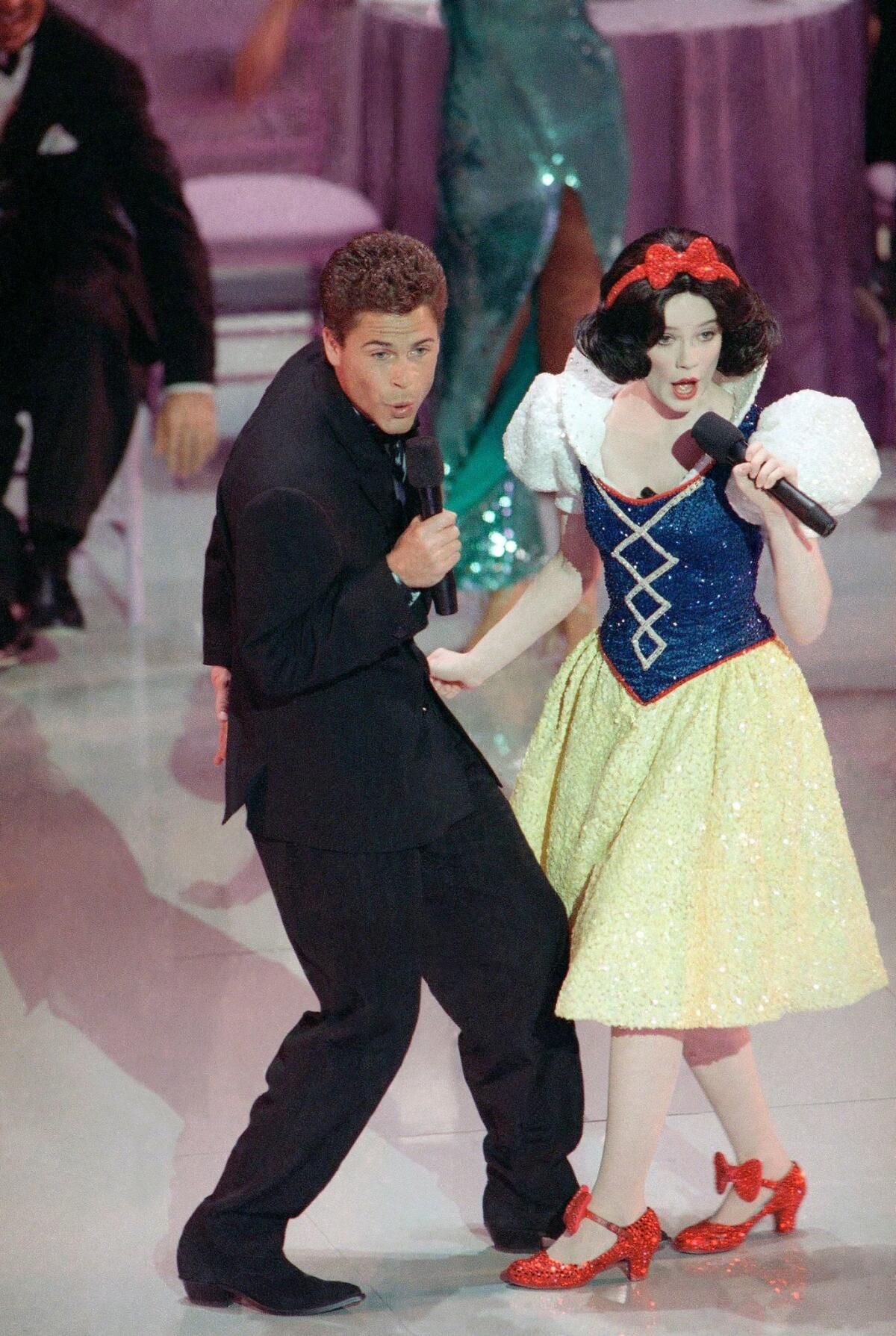
Review: The last time the Oscars had no host, the result was a show ‘devoid of magic’ »
1995
When Lizzy Gardiner walked to the podium to accept the Academy Award for costume design — she and Tim Chappel won for their work on “The Adventures of Priscilla, Queen of the Desert” — her dress stole my heart. Made entirely of expired American Express Gold cards, it looked to me like chain mail — a send-up at once of the armature of glamour that women usually wear to the Oscars, and of the high-money competition the awards were fast becoming. — Julia Turner

1996
For me, the single best Oscar speech, for its sheer pacing and unexpected punchline, was delivered by Emma Thompson when she won adapted screenplay for “Sense and Sensibility.” When called up onstage by Anthony Hopkins to accept, she seemed to be delivering yet another well-crafted but traditional speech of thanks, starting out with a tribute to the book’s author. “Before I came,” Thompson said, “I went to visit Jane Austen’s grave, in Winchester Cathedral, to pay my respects, you know, and” — small pause here — “tell her about the grosses.” The audience burst into laughter. — Stuart Emmrich

2006
“Crash.” It said it all, didn’t it? An accident, a catastrophe, something that should never have happened: in this case, a lethally overwrought civics lesson of a movie prevailing over a legitimate classic (“Brokeback Mountain”) and three other superior movies (“Capote,” “Good Night, and Good Luck” and “Munich”) to nab Hollywood’s highest honor. Even director Paul Haggis, it should be noted, has acknowledged he wouldn’t vote for his own movie today. One hopes the rest of the academy would follow suit. — Justin Chang

2008
When the tiny Irish indie “Once” won original song for Glen Hansard and Markéta Irglová’s “Falling Slowly,” Hansard made charmingly shocked remarks. But after only 36 seconds (a minute less than recent original song-winners’ speeches), Irglová stepped up and was loudly played off. It was the eve of her 20th birthday. After the break, host Jon Stewart brought her back on... “Hi everyone,” she said. ”I just want to thank you so much … Fair play to those who dare to dream and don’t give up.” — Michael Ordoña

2013
If such a fall had to happen — and given the historical relationship among slick stairs, absurdly full skirts and high heels, it absolutely did — thank heavens it happened to Jennifer Lawrence. After tripping on her Dior and falling into a brief but poignant “Christina’s World” meets “Swan Lake” heap on the steps, she pulled herself up and made it to the stage to accept her Oscar for “Silver Linings Playbook” with admirable composure. “You guys are just standing up because you feel bad that I fell,” she said, “and that’s really embarrassing.” — Mary McNamara

2014
Under hot lights and in front of cameras streaming live to millions of viewers, even the biggest Hollywood stars get a little nervous. Just ask John Travolta. In 2014, the musical veteran was called onstage to introduce Idina Menzel before she performed “Let It Go” from “Frozen.” Instead, in one of the most epic pronunciation fails of all time, he referred to her as “Adele Dazeem.” Travolta later told Jimmy Kimmel that he’d run into Goldie Hawn in the wings just as he walked onstage, and was so star-struck by the “Overboard” star that he flubbed Menzel’s name when he got to the mike. — Amy Kaufman
Oscar nominations 2019: See the full list »
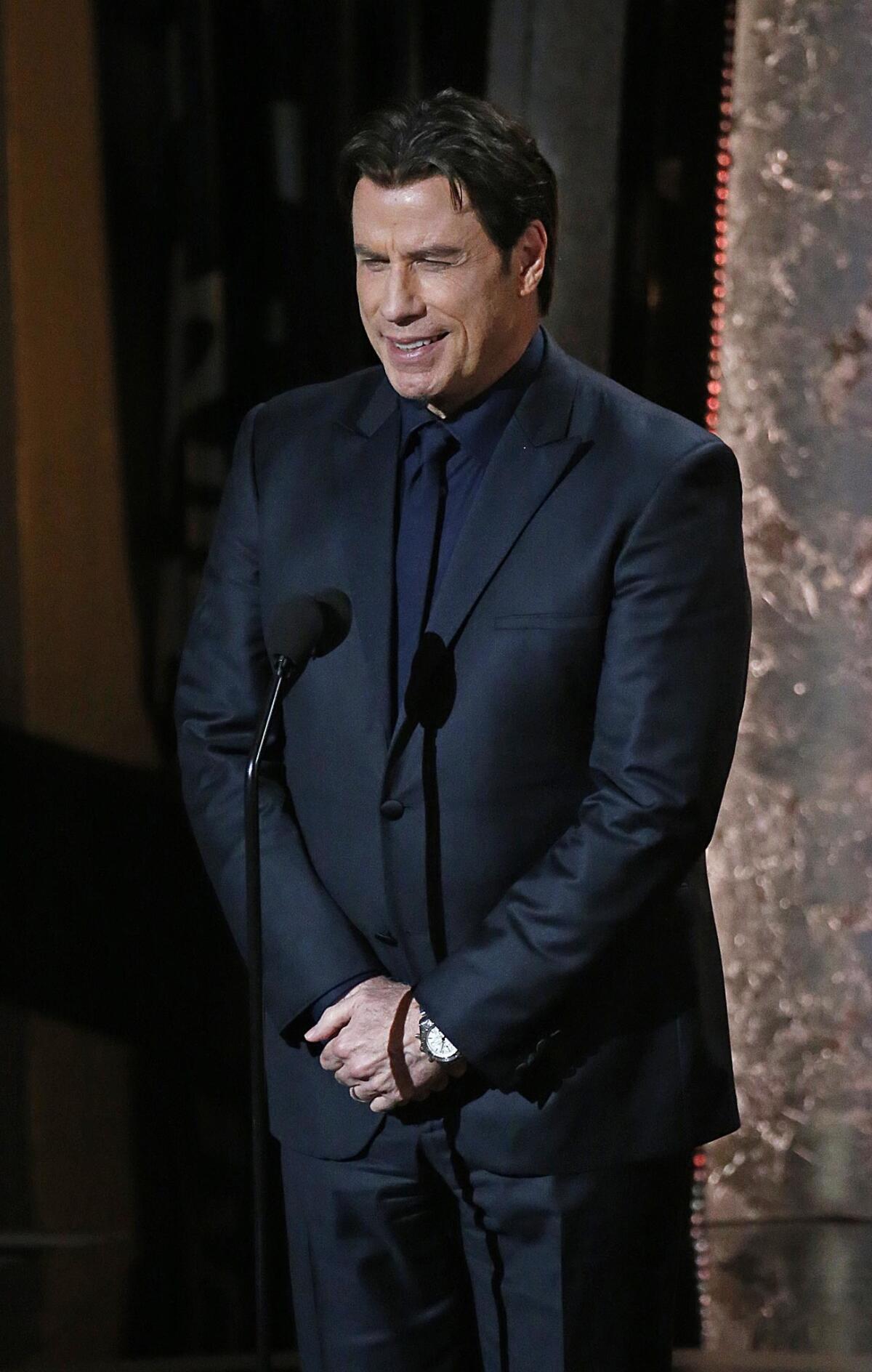
2017
The odds were with “La La Land” that night. So much so that when Faye Dunaway declared Damien Chazelle’s musical hit the year’s best picture, no one questioned it. Until fellow presenter Warren Beatty wouldn’t stop shifting uncomfortably onstage. And someone who clearly wasn’t there to accept an Oscar appeared out of nowhere. And producer Jordan Horowitz held up that envelope, the correct envelope, that declared the winner was actually “Moonlight.” Shocking. Unforgettable. Tragic and triumphant. It was an Oscar moment like no other. — Geoff Berkshire

See the most-read stories in Entertainment this hour »
More to Read
Only good movies
Get the Indie Focus newsletter, Mark Olsen's weekly guide to the world of cinema.
You may occasionally receive promotional content from the Los Angeles Times.


